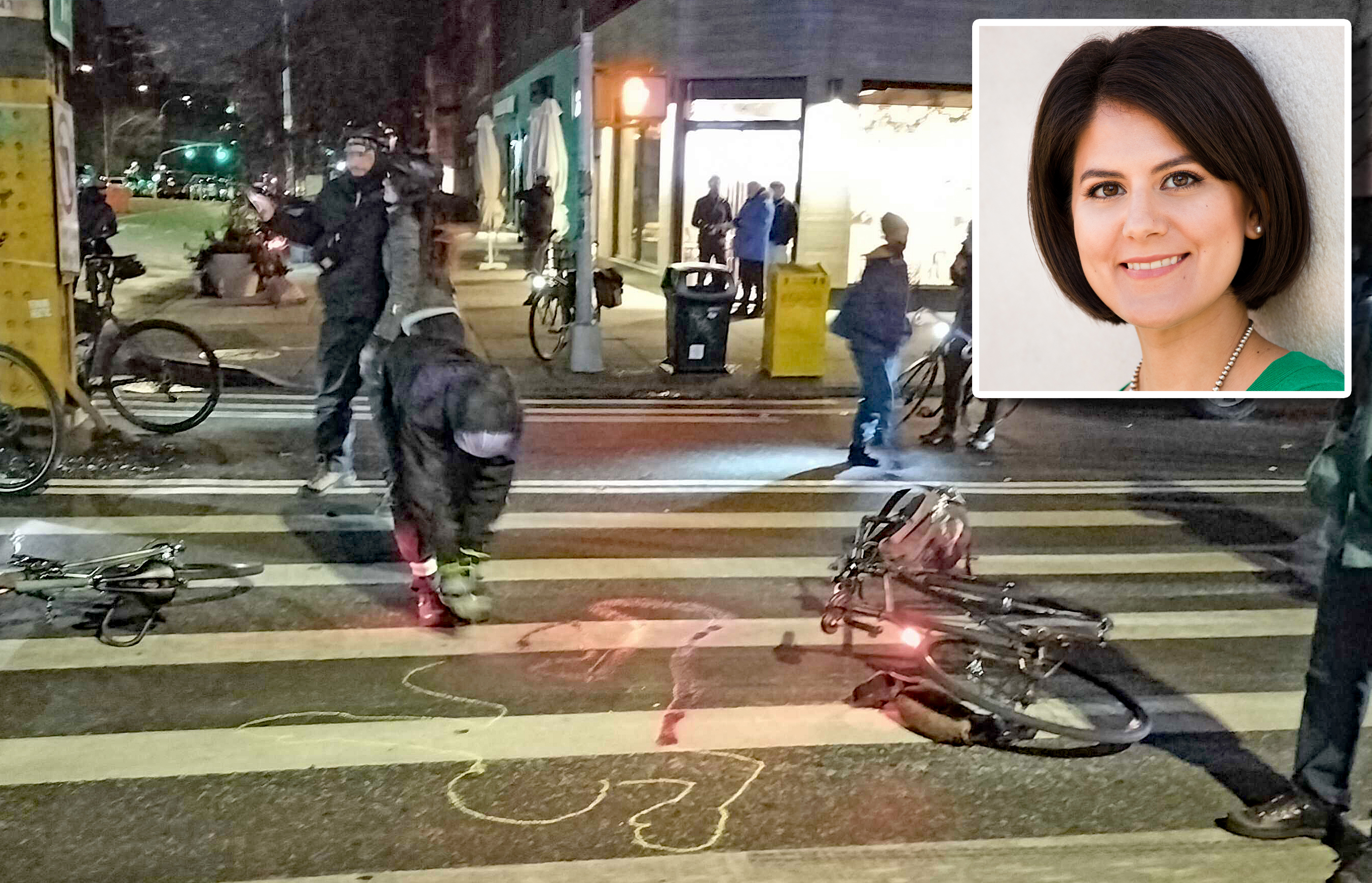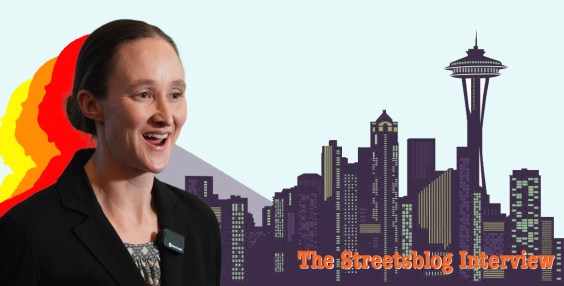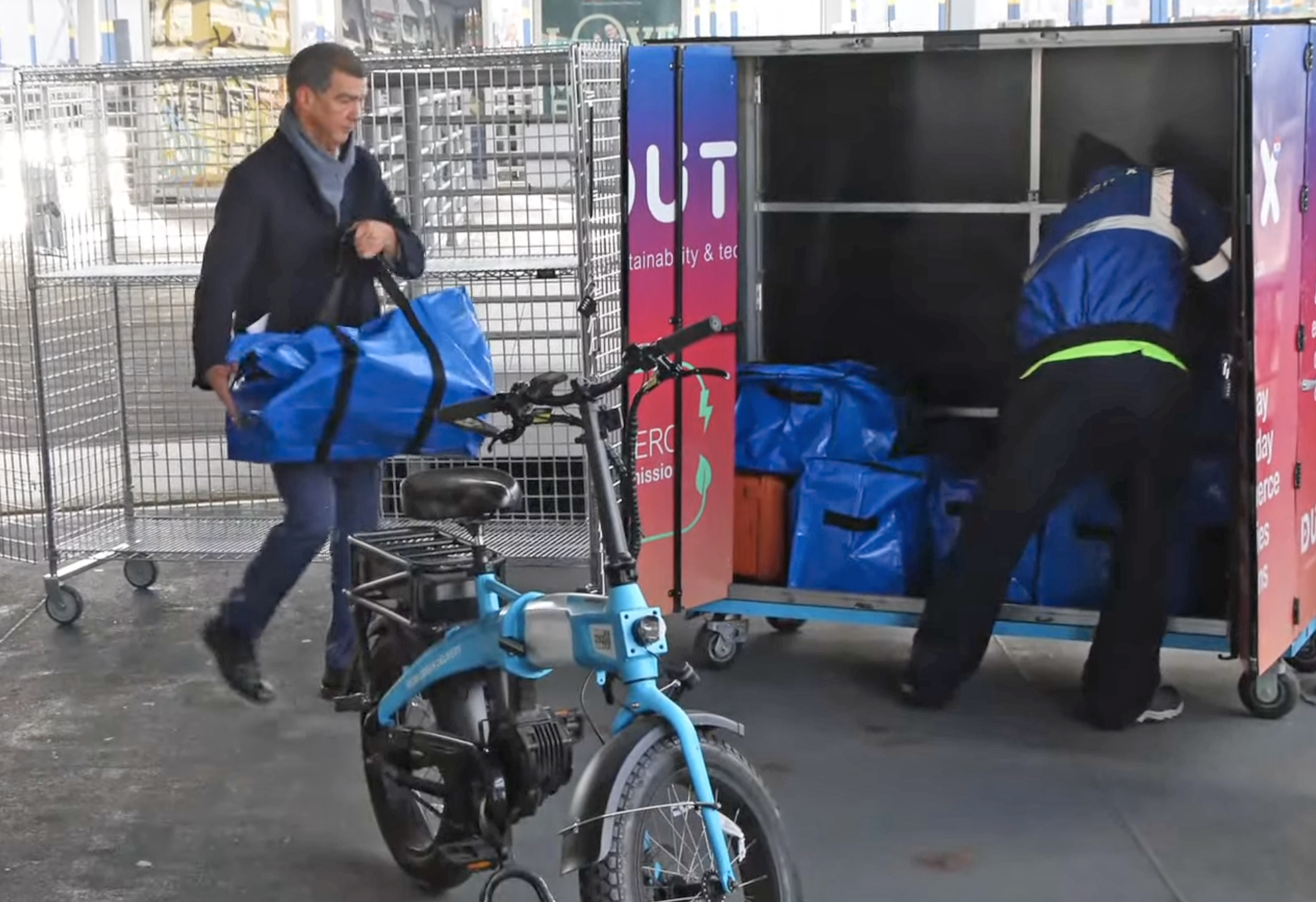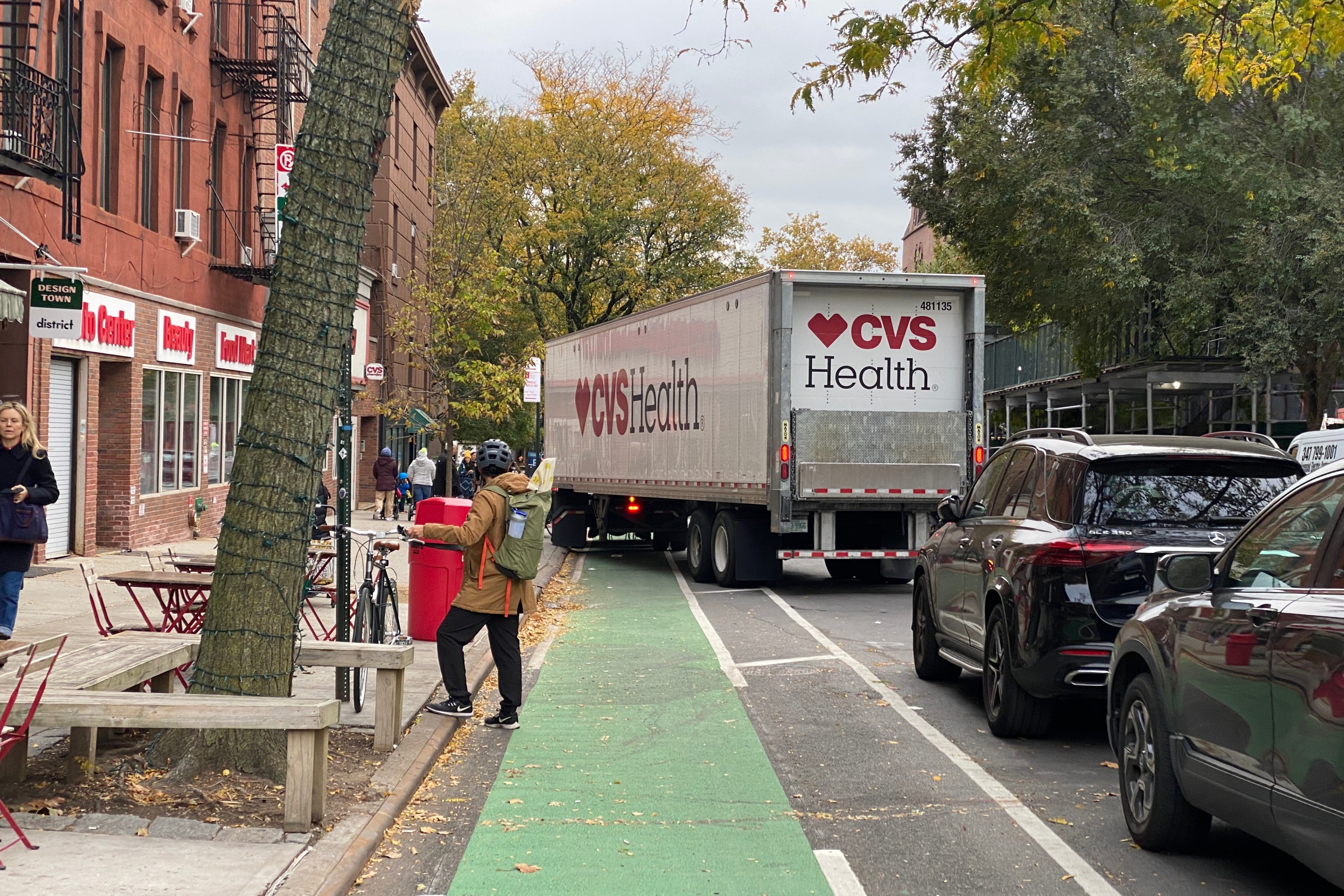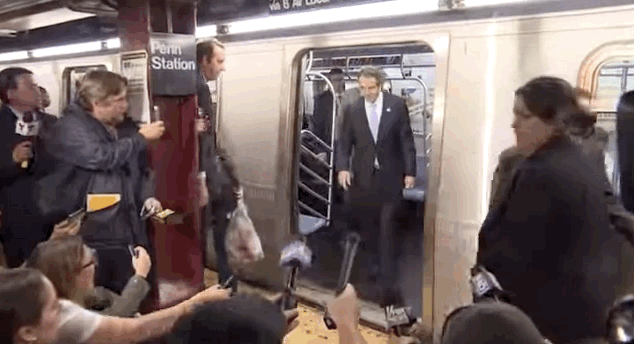
Yesterday on WCNY's "Capitol Pressroom," Susan Arbetter hosted Governor Andrew Cuomo for a discussion of the MTA capital program. Lately, the governor has been pushing City Hall to fund a greater share of the authority's investment plan. Arbetter, pressing the governor, asked a simple question: "Isn't the MTA a state entity?"
"It’s not, actually," Cuomo replied. "It [covers] a metropolitan downstate region."
The answer, of course, is nonsense. The MTA's own list of board members reminds the public that "all board members are appointed by the governor, some on the recommendation of city and county officials." The chair of the authority serves at the governor's behest. The MTA is chartered by the state, and taxes levied by the state help fund more than a third of its operating budget.
The governor controls more than just board appointments. At the MTA, the governor calls the shots. Perhaps these recent events will remind Cuomo that the MTA is a state entity under his control:
- When storms threaten the region, the governor is the one who shuts down the entire transit system.
- He smiled for the cameras and brokered a labor deal between Transport Workers Union Local 100 and the MTA.
- Early in his first term, he cut the Payroll Mobility Tax, one of the authority's major sources of funding.
- Last year, he cut tolls for Staten Island motorists in an election-year ploy, then stuck the MTA with half of the bill.
- His budgets regularly include diversions of MTA operating funds to cover expenses in the state's budget.
- Ten days ago, his own budget office directed the MTA to trim the size of its capital plan, which it did [PDF].
The list goes on. While it's nice to see Cuomo committing to fully funding the (slightly reduced) capital program, it's hard to take his latest comments seriously until he acknowledges the need for a new source of revenue. Generating billions of dollars over five years is no simple task.
That's something the governor seems to understand. In fact, here's Cuomo telling Arbetter about the cost of building new rail tunnels beneath the Hudson River: “It’s about $12 billion, Susan. That’s a lot of money,” he said, pushing for more funds from the federal government. "But we need the funding. And if we have a source of funding, we’ll go."
Yet when it came to finding $8 billion in the state's budget for the MTA over the next five years, Cuomo seemed less concerned. “I’m sure we can find the funds if we make it a priority, and I’m willing to make it a priority," he said.
Arbetter brought up toll reform as a way to raise the needed revenue, but Cuomo dismissed it as somehow not his responsibility.
"If the city wants to put that idea forth next year, God bless them. Let them talk to the legislature. But I am dubious, as is the MTA, about the success of that plan politically," he said. Then, after capping a legislative session during which he did his best to ignore MTA funding, Cuomo uncorked this gem: "We should start the capital plan for the MTA now... I don’t want to waste a year that the MTA doesn’t go forward with a capital plan because we think that maybe we can put tolls on bridges."
Increasing direct state and local support for the MTA capital plan could and should be part of discussions about funding the system. But if Cuomo has a better plan than toll reform for a sustainable source of MTA revenue, he's not saying what it is.

